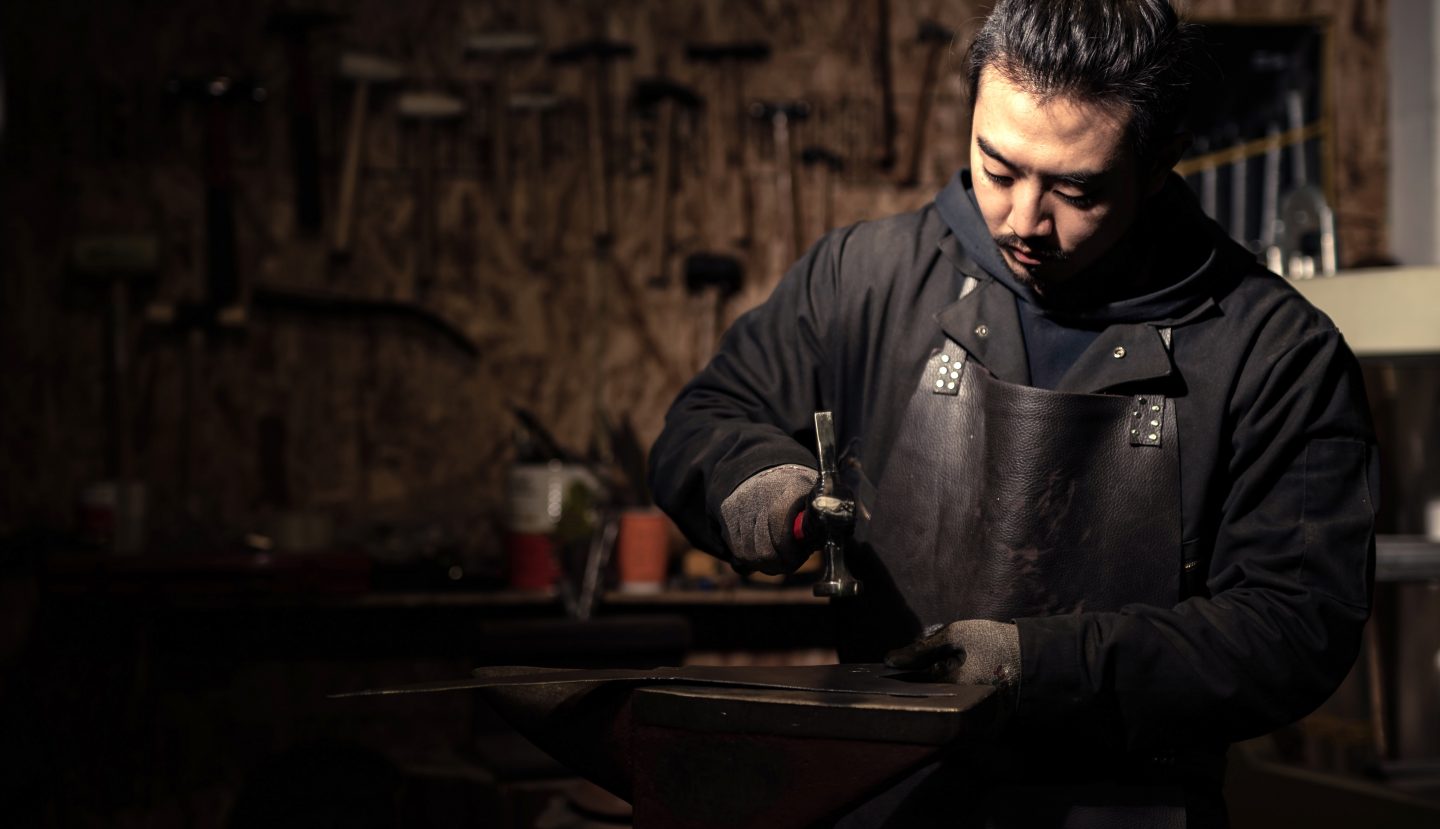
Photo by Yohan Cho on Unsplash
There are days when I wonder what it would be like to be a physician or a photojournalist or a museum curator. These are almost always days that coincide with the feeling that I’m not quite cutting it as a writer.
There are probably men and women who always feel they are capable of the task before them. There are probably those who never feel as though the demands of vocation and their supply of talent are at odds.
There are perhaps those among us who work and never grow weary – despite result or outcome.
But I suspect many of us feel otherwise. No one ever tells you on career day that the glove may fit, but the work of your hands will still cause callouses.
High benchmark
Not long ago, I was reading about the making of the tabernacle; in Hebrew the word is mishkan, which means ‘dwelling place’ or ‘residence’.
The instructions given to Moses for the dwelling place they were to make for God were quite explicit, and excellence was clearly expected. The work of “a skilled craftsperson” was demanded for everything from the curtains and the woodwork to the oil and the incense.
No one ever tells you that the glove may fit, but the work of your hands will still cause callouses.
Much of the book of Exodus, in fact, reads like an employee manual or a progress report in which “every skilled person to whom the Lord has given skill and ability” labours to do the work and completes each task just as the Lord commanded.
In a moment of defeat, such a vision might make us feel all the more inadequate. The work of these skilled craftspeople appears everywhere, with no mention of deficiency, doubt, or difficulty:
“For the entrance to the tent, they made a curtain of blue, purple, and scarlet yarn and finely twisted linen – the work of a fine embroiderer.”(Exodus 36:37)
“They also made the sacred anointing oil and the pure, fragrant incense – the work of a fine perfumer.” (Exodus 37:29)
“They hammered out thin sheets of gold and cut strands to be worked into the blue, purple and scarlet yarn and fine linen – the work of a skilled craftsman.” (Exodus 39:3)
In the end, the various craftspeople of Israel walked away from their work knowing they had done well. Everything they set out to accomplish was completed exactly as the Lord had commanded.
Great expectations
Hopefully there are days when this can be said of the work of our hands – that we are skilled and at work in ways that seem right and meaningful and accomplished.
Perhaps for good reason, it is not always God’s way to make clear the weight of our labour.
Whether one thinks of themselves as religious or not, vocation can hold a sense of purpose and design, a sense that we are doing what we were created to do.
For the Christian, vocation often includes a sense of call, a desire to work as God would have them work, to be men and women using the skills and abilities God has given.
Yet, despite the language we use, chances are this sense of purposeful skill and accomplishment isn’t the case with every thing we do.
We may very well labour with the skills we were born to use, and yet be without the affirmation that it was completed exactly as it could have been – or as God wanted. We may even walk away with a sense of defeat, the fatigue of calloused hands, or the complaint of unclear instruction.
Yet perhaps for good reason, it is not always God’s way to make clear the weight of our labour.
The Master’s touch
In his letter to the Corinthians, Paul explains: “For we are God’s servants, working together; you are God’s field, God’s building. According to the grace of God given to me, like a skilled master builder I laid a foundation, and someone else is building on it. Each builder must choose with care how to build on it.” (1 Corinthians 3:9-10)
We are called to build carefully and creatively, and to labour well.
Paul describes the labour of Christ-followers as work that is undergirded by a builder whose plans we don’t yet see. Nonetheless, we are called to build carefully and creatively, and to labour well.
It is reminiscent of the line in CS Lewis’ Perelandra: “One never can see, or not till long afterwards, why any one was selected for any job. And when one does, it is usually some reason that leaves no room for vanity. Certainly, it is never for what the man himself would have regarded as his chief qualifications.”
Standing before the completed tabernacle, Moses inspected the work and saw that they had done it just as the Lord had commanded. So he blessed them and then set to work himself.
When Moses finished everything God had instructed of him and all the labour was finished on the tabernacle, the completed work of the skilled craftspeople was transfigured by the arrival of God’s glory: “Then the cloud covered the Tent of Meeting, and the glory of the Lord filled the tabernacle.”(Exodus 40:34)
The work of our hands has no better end.
This article was first published on A Slice of Infinity, a ministry of Ravi Zacharias International Ministries, and has been republished with permission.
We are an independent, non-profit organisation that relies on the generosity of our readers, such as yourself, to continue serving the kingdom. Every dollar donated goes directly back into our editorial coverage.
Would you consider partnering with us in our kingdom work by supporting us financially, either as a one-off donation, or a recurring pledge?
Support Salt&Light



